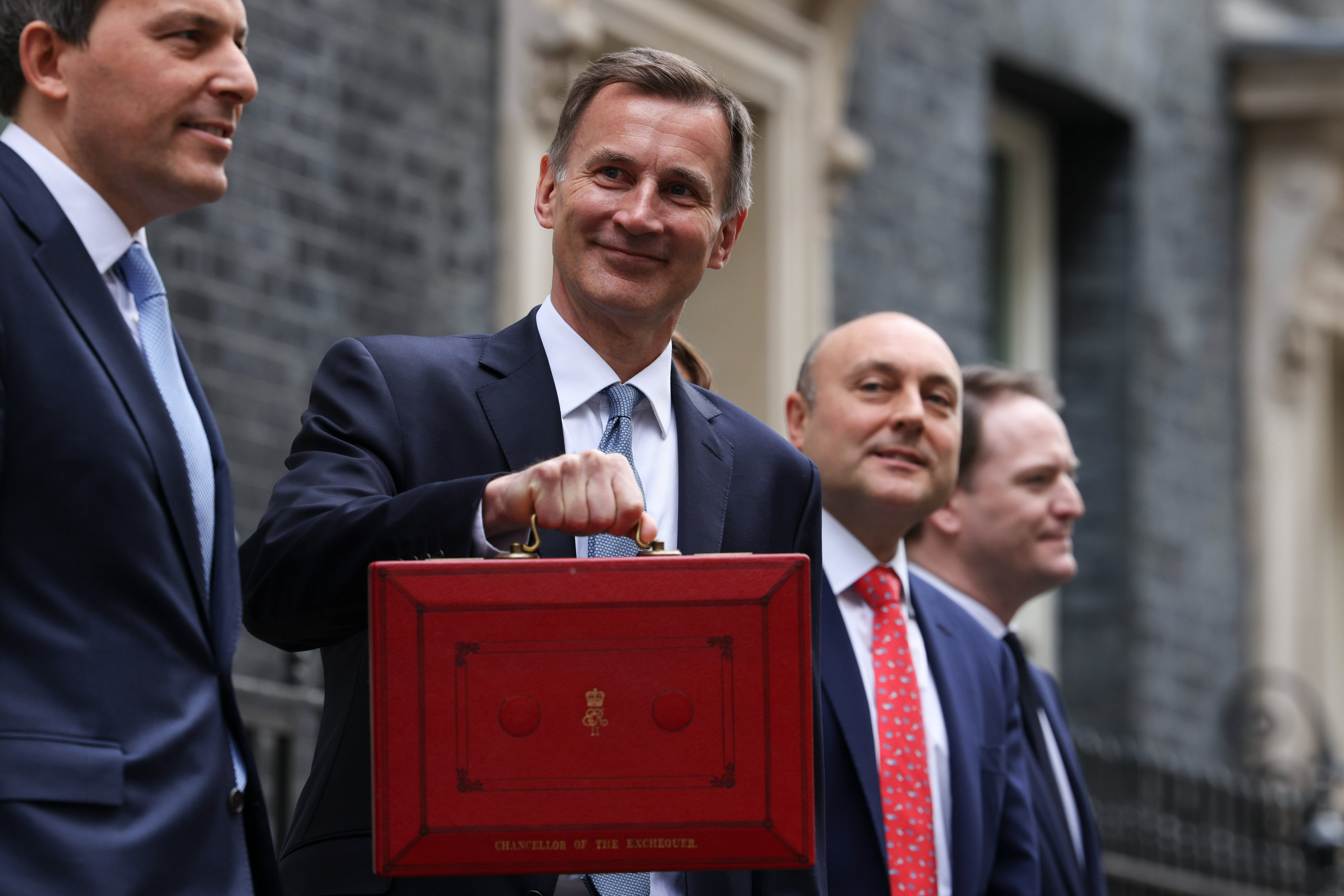Dave provides us with his expert commentary on the governments Spring Budget 2023, and of course what this means for businesses. Take it away, Dave…
There’s not been as much long-term chatter as usual around what may or may not happen in the March 2023 budget. I suspect that much has been lost in journalistic debates around the Northern Ireland Protocol and increasingly frantic attempts to pass legislation to stop small boat ‘invasions’.
The proposed Corporation Tax increase has proven, unsurprisingly, unpopular with almost everyone in politics and business, but we didn’t expect Jeremy Hunt to back down, remove or water down the proposals. We can see his strategy, increase now and look for scope to reduce or throw some carrots in the 2024 budget before the election.
What felt more likely – and more popular – than any give on Corporation Tax, was maybe some rethought on the taxpayer’s contribution to the energy price cap. With forecast wholesale energy prices substantially reducing now, billions of pounds of potential support expenditure has disappeared. Let’s see what gives here….
In other news, we expect the R&D and (S)EIS changes announced in November to carry through, the same with any personal tax band freezes. ‘Fiscal drag’ is being demonstrated in a practical way with one client predicting her partners salary breaking the £50k mark due to an inflation-matching increase – with the subsequent impact on the families child benefit claim. Double benefit for the treasury – more tax and NI receipts, less pay out on CB. Maybe some tinkering with pensions of one sort or another.
Before we dive into detail, a quick sales pitch for the Innovation Supernetwork Funding for Growth session on 16th March (yes, tomorrow if you’re reading this on the day). We have a short (too short, just a taster!) session on process within the event, you can register here.
The economy
The Office for Budget Responsibility (OBR) believes we won’t now enter a technical recession, albeit a slight contraction in GDP in 2023. The documents in full here.
First, on the commercial side…
Corporation Tax Changes
The pre-announced Corporation Tax changes are confirmed, with the main rate rising from 19% to 25% – a 31% increase (do the math). It’s not quite that simple, taxable profits of £50k or less will remain in the 19% band (now renamed the small profits rate – SPR), and profits of between £50k and £250k will attract some marginal relief. This is how it used to work!
What does it mean from a startup point of view? Well, for many of you the tax incentive to incorporate will dissipate, if not disappear entirely. However there are many commercial and legal motivators in incorporation for a growing business, it’s definitely not just about tax. Talk to your adviser!
Super Deduction Scheme Ending
The Super deduction is due to end, replaced by full capital expensing for next 3 years. Every £1 invested can be deducted in full and immediately. Most SME’s are covered by the (was temporary, now permanent) £1m AIA.
R&D Tax Credit Scheme Changes
In addition to to the pre-announced R&D tax credit changes, an enhanced credit of 27% will be available for R&D intensive firms where R&D spend is 40% or more of overall expenses.
This aside, from April, the SME R&D enhanced deduction will decrease from 130% to 86%, the SME R&D credit rate (i.e. repayment rate) will decrease from 14.5% to 10% and the RDEC credit rate will increase from 13% to 20%. This may significantly reduce some SME claims, whilst to some degree evening up the two schemes before the results of the consultation on a single scheme are confirmed. The consultation feedback period itself ended two days ago.
The option of implementing a merged scheme from April 2024 will remain open. Draft legislation on a merged scheme will be published for technical consultation alongside the publication of the draft Finance Bill in the summer, with a summary of responses to the consultation. The Treasury document claims no formal decision has yet been made, but there are clues in the previous sentence.
Energy Bill Relief Scheme
Disappointingly, the energy bill relief scheme – support for businesses – still ends on 31st March. Tough on retail and hospitality businesses and, for many, in no way covered by the fuel duty and alcohol duty announcements.
Fuel Duty and AI Sandbox
The planned increase of 11p in fuel duty this year will be cancelled & rates will be kept the same for the next 12 months.
An AI sandbox is to be launched…watch this space.
Returnerships
Apprenticeships for the over 50s will be introduced, with potentially 50,000 places a year.
Audiovisual & culture sector tax relief
A higher rate of audiovisual tax relief will be introduced. The expenditure threshold for high-end TV will remain at £1 million per hour. The government will also extend the temporary higher rates of tax reliefs for theatre, orchestra, and museums and galleries for 2 further years from April 2023.
High growth sector support
Further significant support for green industries, digital technologies, life sciences, creative industries and advanced manufacturing was announced.
This investment in innovative companies and other productive assets will partly come from pursuing accelerated transfer of the £364 billion Local Government Pension Scheme assets into pools. The government will shortly come forward with a consultation.
Nuclear energy recategorisation
Great Britain Nuclear (GBN) will be launched to support the decision to recategorise nuclear energy as environmentally sustainable, opening it up to the same support as other renewable energies.
There will be up to £20 billion funding for early deployment of Carbon Capture, Usage and Storage (CCUS), to help meet our current climate commitments. This will particularly be targeted at hubs on the East Coast, in the North West of England and North Wales.
Tech and AI investment
In line with key recommendations of the Future of Computer Review, £900 million will be made available (subject to review) to build an exascale supercomputer and to establish a new AI Research Resource.
R&D Funding for Innovation Clusters
£100 million is allocated for the Innovation Accelerators programme to 26 transformative R&D projects. This will aim to accelerate the growth of 3 high-potential innovation clusters and support Levelling Up. This includes the Manchester Turing Innovation Hub led by the University of Manchester, 2 quantum projects in Glasgow led by the University of Glasgow and M-Squared Lasers Limited, and a project to accelerate new health and medical technologies led by the University of Birmingham.
EMI Scheme Management Made Simpler
The process to grant options under an EMI scheme will be simplified – currently notoriously difficult to manage! From April, companies will no longer need to set out details of share restrictions within the option agreement or to declare an employee has signed a working time declaration. From April 2024, the deadline for a company to notify HMRC of the grant of an EMI option will change from 92 days following grant, to the 6 July following the end of the tax year (in line with other payroll/benefit reporting requirements).
Simplifying Benefits In Kind
In a surprising acknowledgement that agents have a part to play here, as part of the long-term strategy to simplify the tax system for taxpayers and their agents, HMRC will deliver IT systems to enable tax agents to payroll Benefits in Kind on behalf of employers. Seems like the payrolling of benefits ain’t going quickly enough…
More Helpful Tax Debt Management for HMRC
A further £47.2 million will be invested to improve HMRC’s capability to manage tax debts. This will allow HMRC to better distinguish between taxpayers who can afford to settle their tax debts but choose not to, from those who are temporarily unable to pay, ensuring taxpayers are offered the right support. The online Self-Serve Time To Pay service will be enhanced.
VAT Treatment Review
A review of the VAT treatment of financial services is under way. This builds on the recommendations of the Industry Working Group established to consider the future of VAT and financial services. The aim is to simplify the VAT treatment of financial services, reduce inconsistencies and provide businesses with greater clarity and certainty.
Making Tax Simpler for Sole Traders
There will be further consultation on expanding the cash basis, which is a simpler way for sole traders to calculate and pay their income tax. The government is interested in ways to increase the number of eligible businesses and how to increase use of the cash basis within the eligible population, to ensure as many businesses are benefitting from this simplification.
Now, on the personal side…
Income Tax Band Rates Remain Frozen
Fiscal drag continues to make us a high tax economy on the personal side, with no changes to the freezing of income tax bands or rates.
Capital Gains Tax Changes
The Pre-announced Capital Gains Tax changes will come into force next month, with the annual allowance halving to £6,000 in April then halving again to £3,000 in April 2024.
Pension Updates
Many of you might feel that the Pension lifetime allowance is a first world problem, but it is a major problem for many senior and experienced members of the NHS, with mandatory pension contributions taking them further above the limit, the more they work. This has been a key driver in many going part time or taking early retirement.
The complete removal of this allowance is a positive move and long overdue in a world where more and more, we need to look to ourselves to look after our futures. The annual contribution limit also increases from £40k to £60k, subject to salary and other limitations. The Money Purchase Annual Allowance (in simplified terms, what you can generally contribute after taking your tax-free pension lump sum) will also increase from £4k to £10k.
Childcare Support Improvements
There’s a big leap forward in childcare support. Not knocking the policy – UK childcare costs are amongst the most expensive in the world and this will be welcome news to tens of thousands of parents. However, building on top of an environment where it’s already difficult to find support in some areas, with some nurseries closing due to being uneconomical. There’s an acknowledgment of this issue and the significant decline in supply in recent years. So there will be financial incentives to register with further funding for nurseries. Maximum child ratios will also increase from 1-4 to 1-5 for 3YOs.
The support will be up to 30 hours a week for 38 weeks a year for every child over 9 months where both parents work at least 16 hours. This will be introduced in stages to ensure (hopefully) the relevant supply exists, so we’re a year away yet… for 2YO it’s introduced at 15 hours from April 2024, in September 2024 the 15 hours extends to all from 9 months up, then in September 2025 the 15 hours increases to 30 hours.
Both the pension and childcare changes, plus other education based initiatives, underpin the governments need and desire to drag more working age people back into work.
Energy Price Guarantee
It’s confirmed that the existing limits for the energy price guarantee has been extended over the second quarter of the year. The planned increase to a level of £3,000 per year will therefore be implemented on 1 July, rather than 1 April as previously announced.
Remember, this doesn’t actually cap the amount you’ll pay for your utilities – that still depends on usage – but it does cap the unit price. Whilst this is welcome news we’re still paying double compared to two years ago, and although wholesale prices are forecast to further reduce over Q3, next winter may become more problematic. Please note the EPG applies to domestic tariffs only.
Also for those on prepayment meters – historically paying higher tariffs – charges will be realigned to comparable direct debit charges.
Self Assessment Tax Return Form Changes
There will be changes to the Self Assessment tax return forms requiring amounts in respect of reporting crypto assets to be identified separately from 2024-25.
In other news
There will be 12 new Investment Zones across England…Investment zones: West Midlands, Greater Manchester, North East, South Yorks, West Yorks, East Midlands, Teeside, Liverpool plus at least one each in Scotland, Wales, and NI.
Banking with Silicon Valley Bank? The very sensible Stuart Clarke signposts us to COADEC providing what he terms rational commentary and help. It feels like a decent solution has been brokered, with HSBC taking over the UK arm of SVB, but we know that many of you with a UK account will also have assets/liabilities on the other side of the water.
Driving an electric vehicle? Hearing some grumbles recently around performance and cost. Feel free to feed back on your own experiences.
We’re here to help
Your financial wellbeing is our business. If you want to talk to someone about what any of the budget announcements mean for your business, get in touch.




